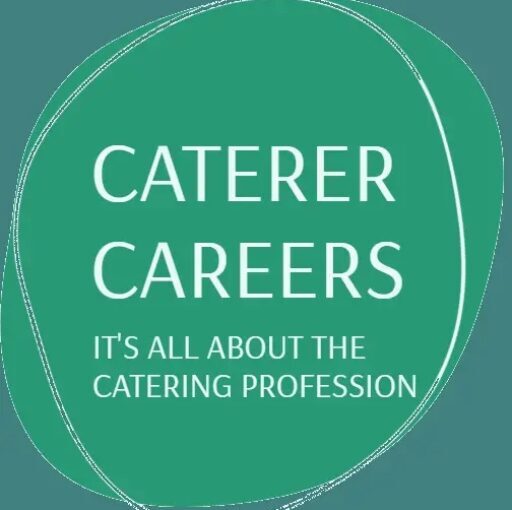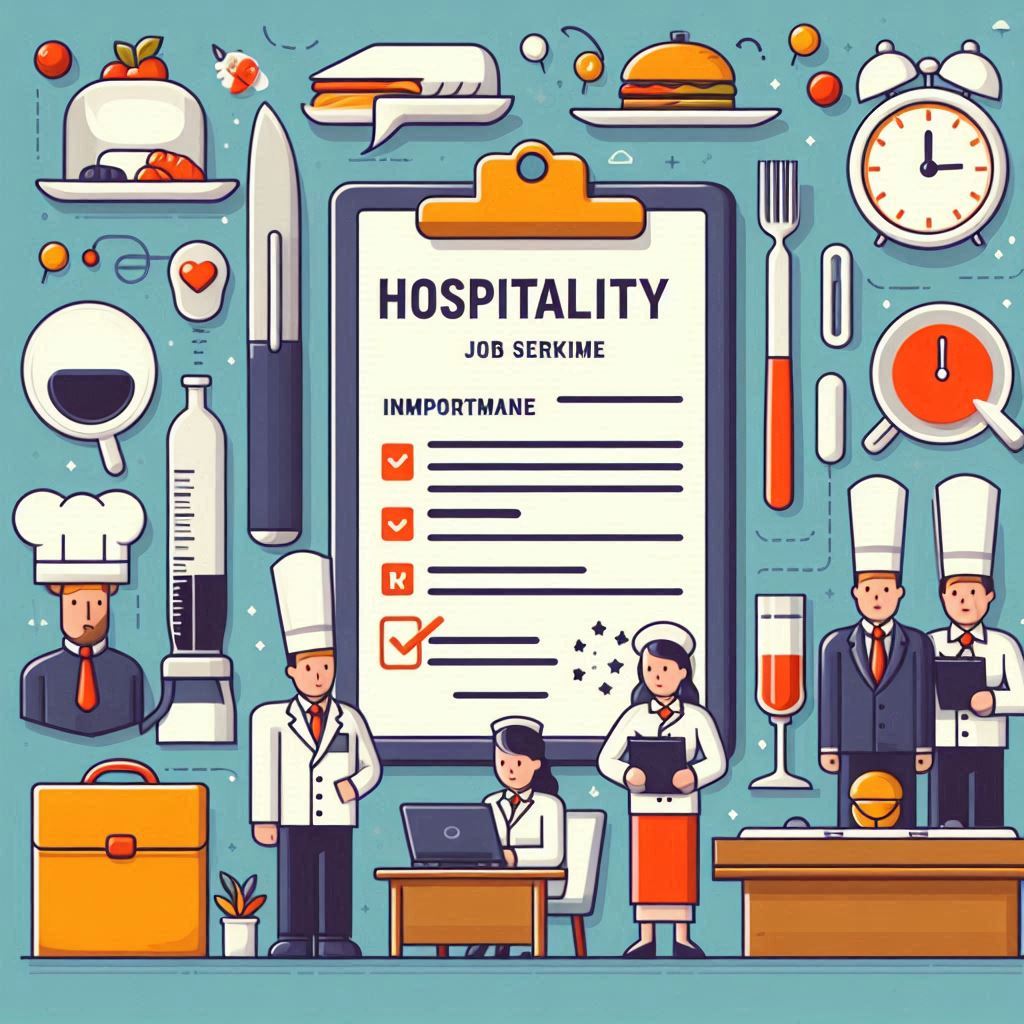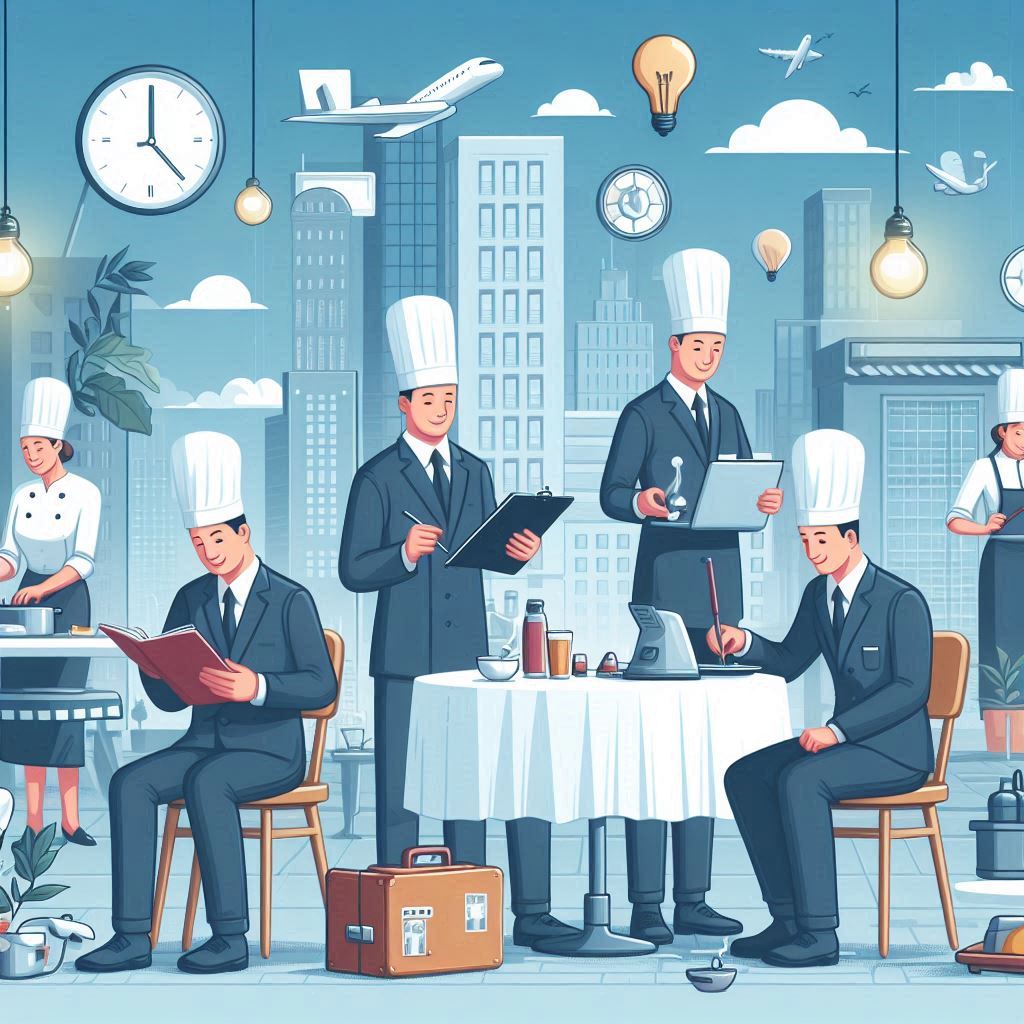
Job seekers interacting at a hospitality job fair.
Introduction
Attending a hospitality job fair is not just about meeting potential employers; it’s also an excellent opportunity to network with fellow job seekers.
Interacting with others who are in the same situation can provide support, insights, and even open doors to new opportunities.
However, many job seekers overlook the importance of these interactions, focusing solely on impressing employers. In this article, we’ll explore how to effectively interact with fellow job seekers at a hospitality job fair to maximize your networking potential and make meaningful connections.
Why Interacting with Fellow Job Seekers Matters
Interacting with fellow job seekers at a hospitality job fair can be beneficial in several ways. It allows you to share experiences, exchange information about potential job openings, and build a network of contacts who can offer support and advice throughout your job search.
Additionally, the relationships you build at a job fair can lead to long-term professional connections that may benefit your career in the future.
Key Strategies for Interacting with Fellow Job Seekers
- Approach with an Open Mind and Positive Attitude
- Why It Matters: Your attitude sets the tone for interactions. Approaching others with an open mind and a positive attitude makes you more approachable and fosters meaningful connections.
- How to Implement: Smile, introduce yourself confidently, and show genuine interest in getting to know others. Be friendly and open to conversations, even with people who may not seem immediately relevant to your job search
- Share Valuable Information and Tips
- Why It Matters: Sharing information, such as tips on how to approach certain employers or details about job openings you’ve heard about, creates a reciprocal relationship where others are more likely to share useful insights with you.
- How to Implement: Offer advice on which booths to visit or share insights from your experiences. This can lead to a more collaborative and supportive environment among job seekers.
- Exchange Contact Information
- Why It Matters: Staying connected after the job fair can help maintain the relationships you’ve built. Exchanging contact information allows for future communication, where you can continue to share opportunities and advice.
- How to Implement: After a productive conversation, suggest exchanging LinkedIn profiles or business cards. This can keep the connection alive and potentially lead to job leads or collaboration in the future.
- Discuss Industry Trends and Experiences
- Why It Matters: Discussing industry trends and experiences not only shows your knowledge but also fosters deeper conversations that go beyond surface-level networking.
- How to Implement: Bring up recent industry developments, such as trends in hospitality management or changes in customer service expectations. Ask others about their experiences and opinions, which can lead to insightful discussions.
- Be Supportive and Encouraging
- Why It Matters: A supportive attitude fosters a positive environment where everyone feels encouraged. This can lead to a more enjoyable and less competitive experience at the job fair.
- How to Implement: Offer words of encouragement to others, especially if they seem nervous or unsure. Simple gestures like wishing someone good luck or complimenting their resume can make a big difference.
Chart: Key Strategies for Interacting with Fellow Job Seekers
| Strategy | Why It Matters | How to Implement |
| Approach with an Open Mind | Sets a positive tone for interactions and fosters meaningful connections. | Smile, introduce yourself confidently, and show genuine interest in others. |
| Share Valuable Information and Tips | Creates a reciprocal relationship where others are more likely to share insights. | Offer advice on which booths to visit or share insights from your experiences. |
| Exchange Contact Information | Helps maintain relationships and can lead to future job leads or collaboration. | Suggest exchanging LinkedIn profiles or business cards after a productive conversation. |
| Discuss Industry Trends and Experiences | Fosters deeper conversations and shows your industry knowledge. | Bring up recent industry developments and ask others about their experiences and opinions. |
| Be Supportive and Encouraging | Creates a positive environment and helps reduce competition. | Offer words of encouragement, compliment others, and create a supportive atmosphere. |
FAQs
1. Why is it important to interact with fellow job seekers at a job fair?
Interacting with fellow job seekers allows you to build a network of contacts, share valuable information, and gain support throughout your job search. It can also lead to long-term professional relationships that benefit your career.
2. How can I make a good impression when meeting other job seekers?
Approach others with a positive attitude, show genuine interest in their experiences, and be willing to share information and tips. Being friendly and open will make you more approachable and help you build meaningful connections.
3. Should I focus on networking with employers or other job seekers at a job fair?
Both are important. While your primary goal may be to connect with potential employers, networking with other job seekers can provide valuable support, insights, and opportunities that you might not get from employers alone.
4. How do I follow up with job seekers I meet at a job fair?
Exchange contact information.
Attending a hospitality job fair is not just about meeting potential employers; it’s also an excellent opportunity to network with fellow job seekers. Interacting with others who are in the same situation can provide support, insights, and even open doors to new opportunities.
However, many job seekers overlook the importance of these interactions, focusing solely on impressing employers. In this article, we’ll explore how to effectively interact with fellow job seekers at a hospitality job fair to maximize your networking potential and make meaningful connections.
Why Interacting with Fellow Job Seekers Matters
Interacting with fellow job seekers at a hospitality job fair can be beneficial in several ways. It allows you to share experiences, exchange information about potential job openings, and build a network of contacts who can offer support and advice throughout your job search.
Additionally, the relationships you build at a job fair can lead to long-term professional connections that may benefit your career in the future.
Key Strategies for Interacting with Fellow Job Seekers
Approach with an Open Mind and Positive Attitude
- Why It Matters: Your attitude sets the tone for interactions. Approaching others with an open mind and a positive attitude makes you more approachable and fosters meaningful connections.
- How to Implement: Smile, introduce yourself confidently, and show genuine interest in getting to know others. Be friendly and open to conversations, even with people who may not seem immediately relevant to your job search.
Share Valuable Information and Tips
- Why It Matters: Sharing information, such as tips on how to approach certain employers or details about job openings you’ve heard about, creates a reciprocal relationship where others are more likely to share useful insights with you.
- How to Implement: Offer advice on which booths to visit or share insights from your experiences. This can lead to a more collaborative and supportive environment among job seekers.
Exchange Contact Information
- Why It Matters: Staying connected after the job fair can help maintain the relationships you’ve built. Exchanging contact information allows for future communication, where you can continue to share opportunities and advice.
- How to Implement: After a productive conversation, suggest exchanging LinkedIn profiles or business cards. This can keep the connection alive and potentially lead to job leads or collaboration in the future.
Discuss Industry Trends and Experiences
- Why It Matters: Discussing industry trends and experiences not only shows your knowledge but also fosters deeper conversations that go beyond surface-level networking.
- How to Implement: Bring up recent industry developments, such as trends in hospitality management or changes in customer service expectations. Ask others about their experiences and opinions, which can lead to insightful discussions.
Be Supportive and Encouraging
- Why It Matters: A supportive attitude fosters a positive environment where everyone feels encouraged. This can lead to a more enjoyable and less competitive experience at the job fair.
- How to Implement: Offer words of encouragement to others, especially if they seem nervous or unsure. Simple gestures like wishing someone good luck or complimenting their resume can make a big difference.
Chart: Key Strategies for Interacting with Fellow Job Seekers
| Strategy | Why It Matters | How to Implement |
| Approach with an Open Mind | Sets a positive tone for interactions and fosters meaningful connections. | Smile, introduce yourself confidently, and show genuine interest in others. |
| Share Valuable Information and Tips | Creates a reciprocal relationship where others are more likely to share insights. | Offer advice on which booths to visit or share insights from your experiences. |
| Exchange Contact Information | Helps maintain relationships and can lead to future job leads or collaboration. | Suggest exchanging LinkedIn profiles or business cards after a productive conversation. |
| Discuss Industry Trends and Experiences | Fosters deeper conversations and shows your industry knowledge. | Bring up recent industry developments and ask others about their experiences and opinions. |
| Be Supportive and Encouraging | Creates a positive environment and helps reduce competition. | Offer words of encouragement, compliment others, and create a supportive atmosphere. |
FAQs
1. Why is it important to interact with fellow job seekers at a job fair?
Interacting with fellow job seekers allows you to build a network of contacts, share valuable information, and gain support throughout your job search. It can also lead to long-term professional relationships that benefit your career.
2. How can I make a good impression when meeting other job seekers?
Approach others with a positive attitude, show genuine interest in their experiences, and be willing to share information and tips. Being friendly and open will make you more approachable and help you build meaningful connections.
3. Should I focus on networking with employers or other job seekers at a job fair?
Both are important. While your primary goal may be to connect with potential employers, networking with other job seekers can provide valuable support, insights, and opportunities that you might not get from employers alone.
4. How do I follow up with job seekers I meet at a job fair?
Exchange contact information, such as LinkedIn profiles or business cards, and follow up with a message thanking them for the conversation. Keep the connection alive by sharing relevant information or opportunities in the future.
5. What should I avoid when interacting with other job seekers?
Avoid being overly competitive or dismissive of others’ experiences. Instead, focus on being supportive, collaborative, and open to learning from each other.
Conclusion
Interacting with fellow job seekers at a hospitality job fair is an often overlooked aspect of networking, but it can be incredibly valuable. By approaching others with an open mind, sharing valuable information, and fostering a supportive environment, you can build relationships that benefit your job search and future career.
Remember, networking is not just about what you can gain but also about what you can offer. By being helpful and encouraging, you create a positive impression that can lead to meaningful and lasting professional connections.
Whether it’s sharing tips, discussing industry trends, or simply offering words of encouragement, your interactions with fellow job seekers can play a crucial role in your success at a hospitality job fair.
such as LinkedIn profiles or business cards, and follow up with a message thanking them for the conversation. Keep the connection alive by sharing relevant information or opportunities in the future.





